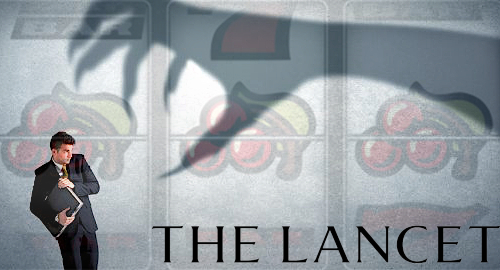
UK medical experts have declared war on gambling, calling it “an urgent, neglected, understudied, and worsening public health predicament.”
This week, The Lancet Public Health journal announced the launch of its inaugural Commission on Gambling, which it claims will be a “scientific inquiry.” However, these scientists appear to have pre-judged the outcome of this inquiry by declaring early on that gambling is “not an ordinary activity: it is a health-harming addictive behavior.”
To be charitable, starting with the conclusion and working backward to arrive at that conclusion is the polar opposite of a scientific approach. It brings to mind the efforts of evangelical Christians to get ‘intelligent design’ taught alongside the theory of evolution in US schools.
Intelligent design, if you’ve forgotten, was the ‘evidence-based scientific theory’ that there was an intelligent creator who created the natural world all at once rather than it happening in fits and starts as the universe expanded from the big bang. How did these evangelicals know this? Well, they just knew, and they wanted kids to know, too.
The Lancet’s intelligent designers claim that gambling – which evidently poses “substantial threats to health and wellbeing” – has been “neglected and understudied as a public health issue.” Gambling research is “sparse and weak” and the gambling industry is using this “paucity of robust evidence” to “oppose or delay policy interventions.”
Yet The Lancet itself appears to be exploiting this supposed lack of research, noting that gambling is “strongly associated with co-morbid mental health issues,” even as the authors concede that it’s “not entirely clear” whether gambling is the cause of these mental health issues or the result of pre-existing issues.
These authors must not have read the countless studies that show strong evidence of pre-existing genetic vulnerabilities to gambling disorders, including the fact that first-degree relatives of pathological gamblers are eight times more likely to develop their own gambling issues than individuals not sharing this tainted DNA.
There are also numerous studies showing distinctly different activity patterns in problem gamblers’ brains compared to individuals who gamble responsibly, and that problem gamblers are more prone to cognitive distortions than non-problem gamblers.
Sorry, our bad. The Lancet claims that terms such as ‘problem gambler’ represent a “highly damaging form of stigma” and the individuals labeled as such suffer “internalization of dangerous and unhelpful self-blame and deep shame.”
The Lancet is similarly dismissive of the concept of ‘responsible gambling’ because it “carries with it a message of irresponsibility and shame for those who supposedly cannot control their gambling.”
So that’s that. There are just gamblers, all of whom are apparently victims of an industry that poses a greater existential threat to society than raging pandemics or Russians bearing vials of Novichok. Just nobody tell those Australian gamblers who reported ‘a more positive change in life satisfaction’ than their non-gambling counterparts during that country’s pandemic lockdown, okay?